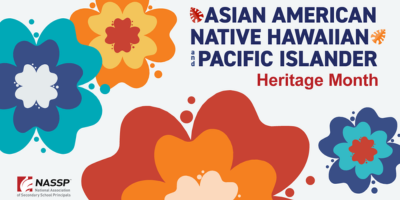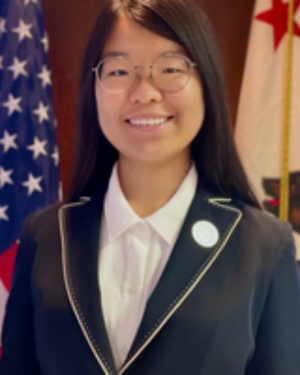It’s Asian American and Pacific Islander (AAPI) Heritage Month. In China, when walking past banners promoting women’s rights and elevating the people’s voice, my father would always comment on the fact that celebration or slogan is only needed when pride or circumstances are lacking. I think the same applies to AAPI Month.
When I moved to the United States with my immediate family in 2014, I certainly was not thinking about being proud of my Asian heritage. All I noticed were the differences between my habits and those of my classmates, the way I would struggle to come up with an answer in response to questions like why I brought what I brought to lunch that day or is it true that I was good at math because of my skin color, and the patronizing looks that my accent and clothing prompted everywhere I went.
So, I worked harder. I talked, dressed, and acted like the people around me. I spent an extra hour a day memorizing vocabulary words and two other hours writing to prove that I knew English and knew it well. I even unconsciously passed on the passive insults I received to my parents. By doing so I hoped I would finally be seen as American, not Asiant—the noun, not the epithet.
I slowly came to realize that no amount of hard work would be enough to combat the prejudice of centuries. During the pandemic, the reminder of this became all too clear when reports began flaring up around the nation and within my community of hate crimes against the most vulnerable members of the AAPI community; the old lady stabbed to death, the grandpa beaten unconscious. A classmate’s vicious whisper of “Chinese disease” would resound across the campus where friend after Chinese friend at my school heard the same thing, culminating in the “kung flu” meme even being used in a morning announcement episode that was shown in every classroom. This time, however, instead of trying to assimilate once again, I resorted to grassroots activism.
Starting the 2020–21 school year, I led the effort to build a cross-campus “Stance Against Hate” coalition. To raise awareness, we created educational videos and infographics with solidarity messages from school staff and community members, streamlined avenues for students to report instances of discrimination to the school administration, and directly engaged over 2,000 students to pledge against hateful speech and actions in collaboration with ADL’s No Place for Hate. I also undertook multiple community-based efforts to uplift the youth of the AAPI community to overcome language barriers, celebrate their cultures, and use their voices to continue fighting for a better future.

To me, AAPI Month serves as a reminder about an often, ignored community that has suffered but persevered. We are not “a model minority,” “a virus,” or any other cruel generalizations of our history and present. We are a vibrant community of over 40 nations, 50 ethnicities, and 100 languages. We are not “going back to our country,” because we have worked hard on this land to build it as much as anyone else has. The fact that we have an AAPI Heritage Month speaks to the endangered status of our heritage. I cannot ask all my sisters and brothers to scream their stories and display their culture every day; I can only ask you, dear reader, for an attentive ear.
Progress is being made daily to make celebrating a month to recognize a people’s humanity less necessary. I sincerely hope that, this May, we can value the experience of each complex member of the AAPI community, and perhaps take some time to inform ourselves about their heritage; because the pride, truly, should be all of ours—that we are here, together, distancing ourselves not from each other but from detrimental alienation, and building the love and trust that are sure to take us far.
Learn more about NHS.

